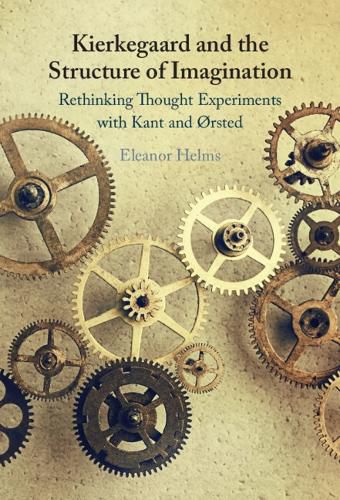Readings Newsletter
Become a Readings Member to make your shopping experience even easier.
Sign in or sign up for free!
You’re not far away from qualifying for FREE standard shipping within Australia
You’ve qualified for FREE standard shipping within Australia
The cart is loading…






Thought experiments play an important role in philosophy and philosophical theorizing. In this book Eleanor Helms examines thought experiments and charts their use in the work of Danish thinkers Hans Christian Orsted (1777-1851) and Soren Kierkegaard (1813-55), arguing that both were influenced by Kant. She demonstrates how key Kantian concepts shape the methods of both thinkers, especially Kant's claim that regulative ideas like the self, God, and nature cannot be directly represented. Kant proposed some ways in which we can make sense of, or 'cognize,' these kinds of abstract ideas, and Orsted and Kierkegaard take up the practical challenge of realizing Kant's optimism by designing thought experiments to make these big ideas meaningfully accessible to individual thinkers. Helms's book is the first comprehensive study of Kierkegaard's use of thought experiments as a method, and reveals its significance for our contemporary understanding of how thought experiments work.
$9.00 standard shipping within Australia
FREE standard shipping within Australia for orders over $100.00
Express & International shipping calculated at checkout
Thought experiments play an important role in philosophy and philosophical theorizing. In this book Eleanor Helms examines thought experiments and charts their use in the work of Danish thinkers Hans Christian Orsted (1777-1851) and Soren Kierkegaard (1813-55), arguing that both were influenced by Kant. She demonstrates how key Kantian concepts shape the methods of both thinkers, especially Kant's claim that regulative ideas like the self, God, and nature cannot be directly represented. Kant proposed some ways in which we can make sense of, or 'cognize,' these kinds of abstract ideas, and Orsted and Kierkegaard take up the practical challenge of realizing Kant's optimism by designing thought experiments to make these big ideas meaningfully accessible to individual thinkers. Helms's book is the first comprehensive study of Kierkegaard's use of thought experiments as a method, and reveals its significance for our contemporary understanding of how thought experiments work.